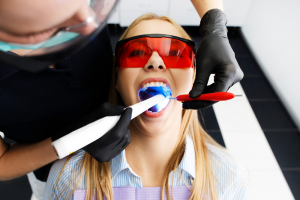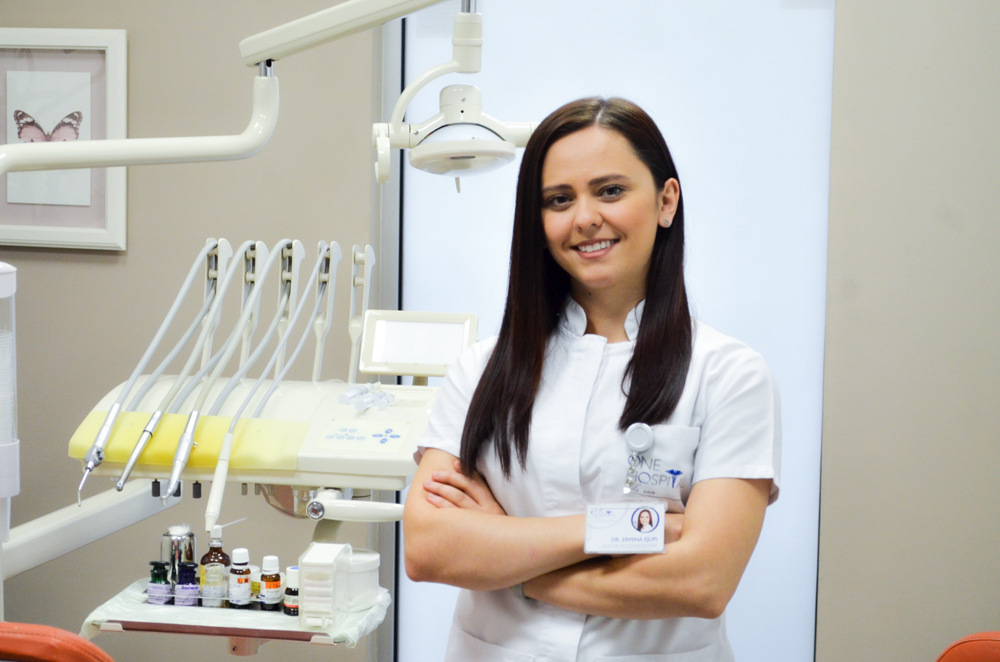What is teeth whitening?
Teeth whitening is one of the most popular procedures in aesthetic dentistry, which removes various discoloration from the tooth surfaces, making the teeth whiter. Every person has a desire for a healthy and attractive appearance. A popular and widespread method is teeth whitening. Teeth can be painted yellow, greenish, gray, brown, and black depending on the cause. The coloration can be: internal and external. Internal discoloration of the teeth occurs as a consequence of a change in the composition or thickness of the tooth tissue:
Tetracycline discoloration – antibiotics that are not recommended for pregnant women because they have an adverse effect on the fetus (permanently discolor the child’s teeth in yellow or gray-brown). Tooth fluorosis – occurs when high concentrations of fluoride are taken during the period of tooth development and there is a change in the color and structure of the teeth.
External discoloration of the teeth is located on the surface of the teeth and is usually a consequence of poor oral hygiene, consumption of coffee, tea, red wine, cigarettes, etc.

How do teeth whiten?
There is a professional whitening that is performed under the supervision of a dentist, in-office conditions and can give instant results which is also called office whitening. With this type of whitening, very good results can be achieved where the teeth can be whitened from one shade to several shades depending on how many sessions of office whitening have been performed.
Another type of bleaching is professional bleaching at home. For this whitening technique, specially made whitening spoons and professional whitening gels are used, which have a lower concentration than the ones we use for office whitening. To achieve a truly whiter effect with this system requires a little more persistence and application of this system for several days in a row.
Are all teeth susceptible to whitening?
Not all teeth are susceptible to whitening. For example, tetracycline discoloration, when the teeth are colored in shades from white to gray, requires long-term whitening treatment and does not always guarantee the desired outcome. Also, artificial materials such as porcelain crown on one of the front teeth or if one of the front teeth has fillings then they can not be whitened, if whitening is done then the smile after whitening will be colorful because artificial materials are not subject to whitening. Then periodontal teeth are not subject to whitening, teeth whitening is also contraindicated during pregnancy and lactation, as well as in children up to 16 years or 18 years, depending on the patient.
Is teeth whitening harmful?
No, many studies have shown that this intervention is not harmful, especially one that is performed in strictly controlled conditions in a dental practice under the supervision of a dentist.
How long do teeth whitening results last?
It is individual. Each patient is given recommendations after teeth whitening intervention. However it is individual. It lasts from 2 to 10 years after the intervention and if patients adhere to these recommendations, if coffee, cigarettes, tea, colored drinks or red wine are avoided then the results can be significantly longer lasting. Teeth whitening can also be done from 6 to 12 months depending on whether the teeth are hypersensitive. Also this procedure can be performed according to the need of the patient.









